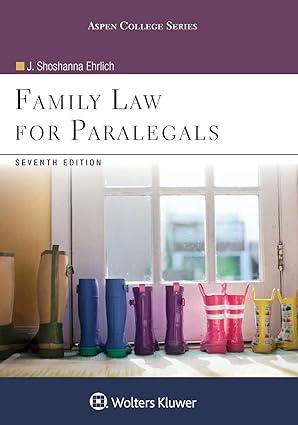Justice KENNEDY delivered the opinion of the Court. The Constitution promises liberty to all within its reach,
Question:
Justice KENNEDY delivered the opinion of the Court.
The Constitution promises liberty to all within its reach, a liberty that includes certain specific rights that allow persons, within a lawful realm, to define and express their identity: The petitioners in these cases seek to find that liberty by marrying someone of the same sex and having their marriages deemed lawful on the same terms and conditions as marriages between persons of the opposite sex. These cases come from Michigan, Kentucky, Ohio, and Tennessee, States that define marriage as a union between one man and one woman. ... The petitioners are 14 same-sex couples and two men whose same-sex partners are deceased. The respondents are state officials responsible for enforcing the laws in question. The petitioners claim the respondents violate the Fourteenth Amendment by denying them the right to marry or to have their marriages, lawfully performed in another State, given full recognition. From their beginning to their most recent page, the annals of human history reveal the transcendent importance of marriage. The lifelong union of a man and a woman always has promised nobility and dignity to all persons, without regard to their station in life. Marriage is sacred to those who live by their religions and offers unique fulfillment to those who find meaning in the secular realm. Its dynamic allows two people to find a life that could not be found alone, for a marriage becomes greater than just the two persons. Rising from the most basic human needs, marriage is essential to our most profound hopes and aspirations. The centrality of marriage to the human condition makes it unsurprising that the institution has existed for millennia and across civilizations. Since the dawn of history, marriage has transformed strangers into relatives, binding families and societies together... There are untold references to the beauty of marriage in religious and philosophical texts spanning time, cultures, and faiths, as well as in art and literature in all their forms. It is fair and necessary to say these references were based on the understanding that marriage is a union between two persons of the opposite sex. That history is the beginning of these cases. The respondents say it should be the end as well. To them, it would demean a timeless institution if the concept and lawful status of marriage were extended to two persons of the same sex. Marriage, in their view, is by its nature a gender-differentiated union of man and woman. This view long has been held - and continues to be held - in good faith by reasonable and sincere people here and throughout the world. The petitioners acknowledge this history but contend that these cases cannot end there. Were their intent to demean the revered idea and reality of marriage, the petitioners' claims would be of a different order. But that is neither their purpose nor their submission. To the contrary, it is the enduring importance of marriage that underlies the petitioners' contentions. This, they say, is their whole point. Far from seeking to devalue marriage, the petitioners seek it for themselves because of their respect-and need-for its privileges and responsibilities. And their immutable nature dictates that same-sex marriage is their only real path to this profound commitment.....
Questions:
1. As explained by the Court, how has the institution of marriage changed over time?
2. What are the four principles and traditions that the Court relies upon in support of its conclusion that same-sex couples have a fundamental right to marry?
3. According to the Court, why is marriage such an important institution?
4. Why does the Court ultimately conclude that it is unconstitutional to ban same-sex partners from marrying?
5. Identify the objections that the dissenting Justices raise in response to the majority opinion.
Step by Step Answer:






